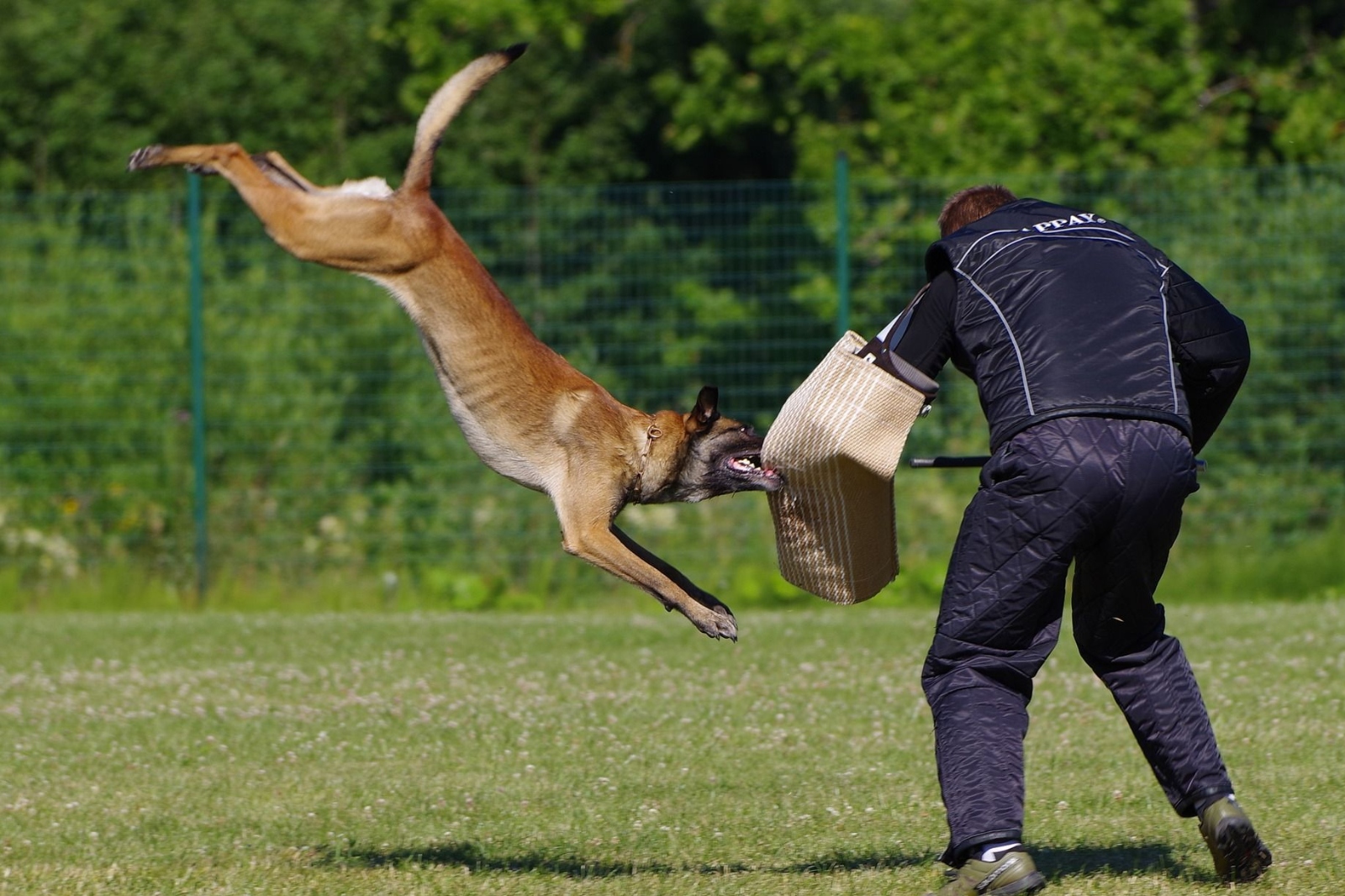Are you an individual who has a love for dogs and is furthermore fascinated with an in-demand career? If so, training to be a security dog trainer could be just the job for you. When you are working with animals that you respect and value, and having them learn ways of serving in a critical capacity, such as police work, airport securities, or even personal protection, your job can take on a whole new dimension. How does one go about this career path? We’ll walk you through the steps of becoming a successful security dog trainer in this article.
What does a security dog trainer do?
A security dog trainer trains dogs for specific purposes that encompass threat detection, protection of property, assistance in various law enforcement-related activities, and much more. In this category, the dogs are adequately trained in sniffing out explosives, narcotics, and other dangerous substances. The trainers also educate dogs in obedience, attack, and defense styles.
Patience, commitment, and perfect understanding of the behavior of dogs are what one requires to do this job. A security dog trainer does not train the dogs alone but works closely with the handlers who handle them, so that both the dog and the handler work in good harmony.
Steps to Becoming a Security Dog Trainer
1. Gain Experience with Dogs
The first one required, prior to the security dog training, is to have general training with dogs. Animal shelters, working with someone who has pet dogs, and taking classes on active behavior in dogs are ways in which experience can be gained. You are to develop knowledge about canines, body language, and basic concepts of training.
2. Education
While formal education is not required, it certainly helps have a background in animal science, psychology, or related courses. Additionally, specialized courses in dog training and behavior, along with certifications within those specialties, will prove to be advantageous.
3. Specialized Training
Once you master the art of basic dog training, it is time to become a specialist. Take in courses or apprenticeships in security dog training which would teach you how to train dogs to become security dogs by the end-for example, for detection and protection. That would therefore involve practical work with experienced trainers.
These various certifications will give you credibility and provide you with a competitive advantage in the job market. Certification providing agencies include the NADOI, or the National Association of Dog Obedience Instructors, and the IACP, or International Association of Canine Professionals. Most of these certification programs involve passing an exam to show your prowess and knowledge in training security dogs.
5. Practical Experience
This one values much the experience gained while working with veteran security dog trainers. In fact, many trainers are usually apprentices or assistants before they start their own training projects. In other words, this develops your skills more fully and enables you to apply the nuances involved in the training of dogs for security purposes.
6. Network
Networking is very important in security dog training. Join other trainers, police personnel, and security agencies. Participate in workshops, seminars, and conferences to stay abreast of state-of-the-art training techniques and industry trends.
7. Set Up Your Own Training Business
With experience, expertise, and certification, one can work with any security company or even start their independent dog training business. Indeed, several freelancer and even contract trainers have turned successful with specialized services in security dog training, while others opened their own training facilities.
Skill Set Required to Become a Security Dog Trainer
- Patience: For training dogs to perform any particular task requires the trainer to be patient enough.
- Communication: You are going to be required to communicate well with the dogs and their handlers.
- Problem-solving: Each dog differs in its own nature, and you will need to find a way how to train this particular dog.
- Physical Fitness: It is an occupation that is very physically demanding, so you’ll have to keep fit.
- Attention to Detail: In training, precision will make sure that dogs execute their tasks correctly and safely.
Q: Do I need a degree for training security dogs?
A: No, a degree is not required, though training in such fields as animal behavior or psychology may be beneficial. More beneficial in this arena would be specialized training in the field itself, along with certification.
Q: How long does it take to become a security dog trainer?
A: That depends on a number of things; for example, someone’s past experience and the kind of training program they decide to enroll in. The period ranges from several months to a few years to attain the needed competencies and certifications.
Q: Am I able to freelance as a security dog trainer?
A: Of course, many security dog trainers own businesses or work as freelancers providing their services to various security companies and private individuals.
Q: Which breeds of dogs are employed for security?
A: German Shepherds, Belgian Malinois, and Rottweilers are very ordinary security dogs because they are highly intelligent, muscular, and very sensitive to training.
Q: Is it dangerous to train security dogs?
A: There is a danger associated with this job; nevertheless, the risk is reduced with good training and following all safety measures. One must be very cautious and never make any compromise on safety.
Conclusion
Training security dogs can be a very rewarding job, enabling one to work closely with dogs while playing a vital role in public safety. With training, certification, and experience, you will soar in this field and make great contributions. You could work for a security company, or you might own your own business, as the demand for skilled security dog trainers will only continue to rise.
